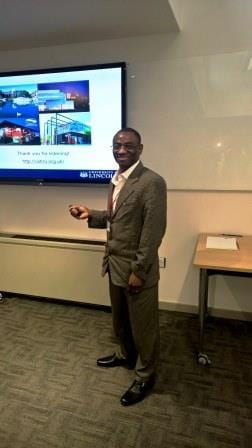Improvement Science and Research Methods seminar October 2022: Recruiting research participants through social media by Dr Joseph Akanuwe

Dr Joseph Akanuwe, Postdoctoral Research Associate at the Community and Health Research Unit (CaHRU), University of Lincoln, gave the CaHRU improvement science and research methods seminar on 12th October 2022. Joseph started the seminar by stating that social media has Continue reading Improvement Science and Research Methods seminar October 2022: Recruiting research participants through social media by Dr Joseph Akanuwe



